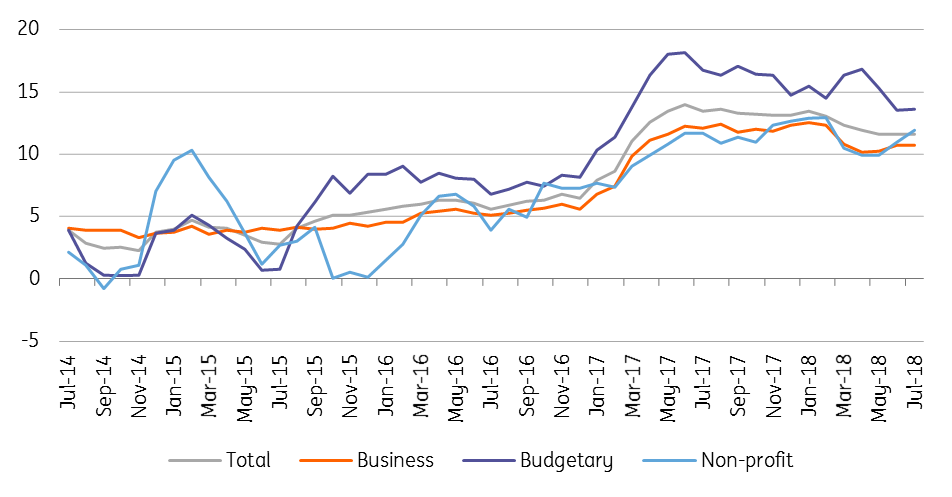Hungary: Wage growth accelerates on bonuses
Both gross and net wage growth accelerated in July. The upside surprise stems from significant bonus payments in the budgetary sector
| 12.8% |
Average gross wages (YoY)Consensus (11%) / Previous (11.2%) |
| Better than expected | |
Hungarian average gross and net salaries increased by 12.8% year-on-year in July, the second highest rate in 2018. In addition to the usual suspects (labour shortage, increase of minimum wage and wage settlements in the public sector), there was another contributing factor to the surprisingly strong wage growth.
Wages increased by 17% YoY in the public sector, but as regular salaries were up by 13.8% YoY on average, premiums and one-month bonuses jumped by 132% YoY. In the business sector, gross earnings rose by 11.1%, broadly in line with the average rate in the first seven months. All in all, the story is more or less the same: extraordinary government decisions are pushing wages higher, but the market-based increase is more moderate.
Wage dynamics (3-month moving average, % YoY)

The July data in labour demand also contains a significant upside surprise: employment increased by 3.2% YoY at the national level. The number of fostered workers decreased by 50.8k YoY, dropping to a multi-year low of only 113.4k, while the improvement in the primary labour market is even more impressive (5.2% YoY). For the first time ever, the statistics show that more than three million people had jobs in the primary market.
Change in employment (000k, 14 Jan = 0)

Overall, the labour market could still produce positive surprises, but with a constant reduction in the potential pool of employment (inactive and fostered workers), it would be hard to maintain these trends into 2019. For next year, we expect a significant redistribution between the public and private sector, as the government looks for opportunities to downsize. It will also have a technical (composition) effect upwards on average wages, which should remain close to double-digit territory.